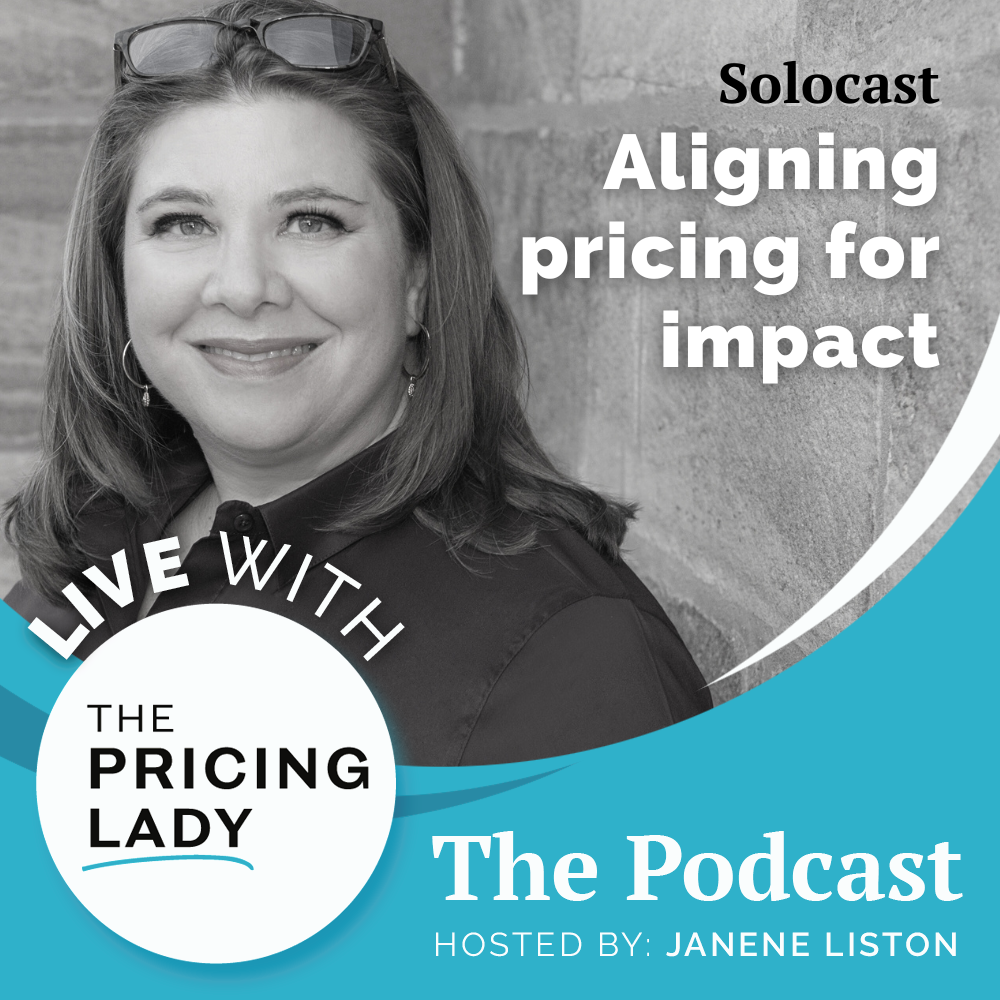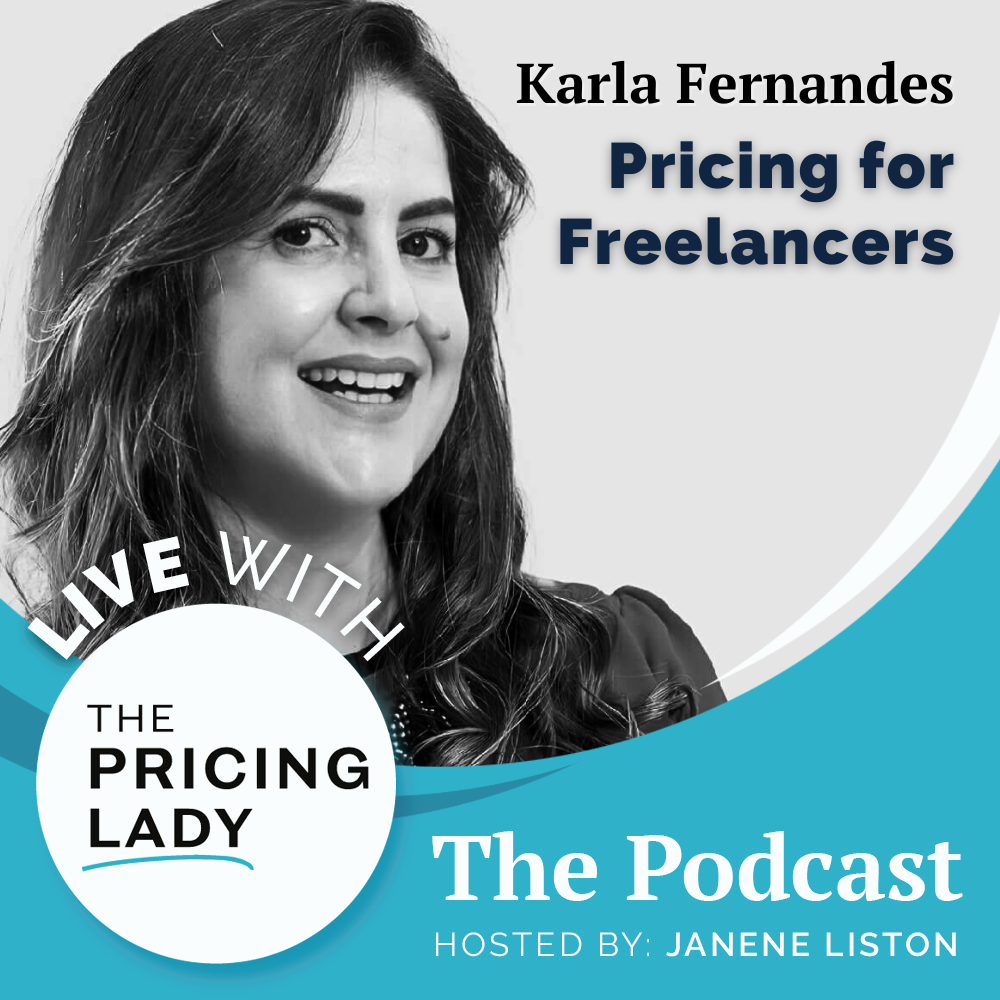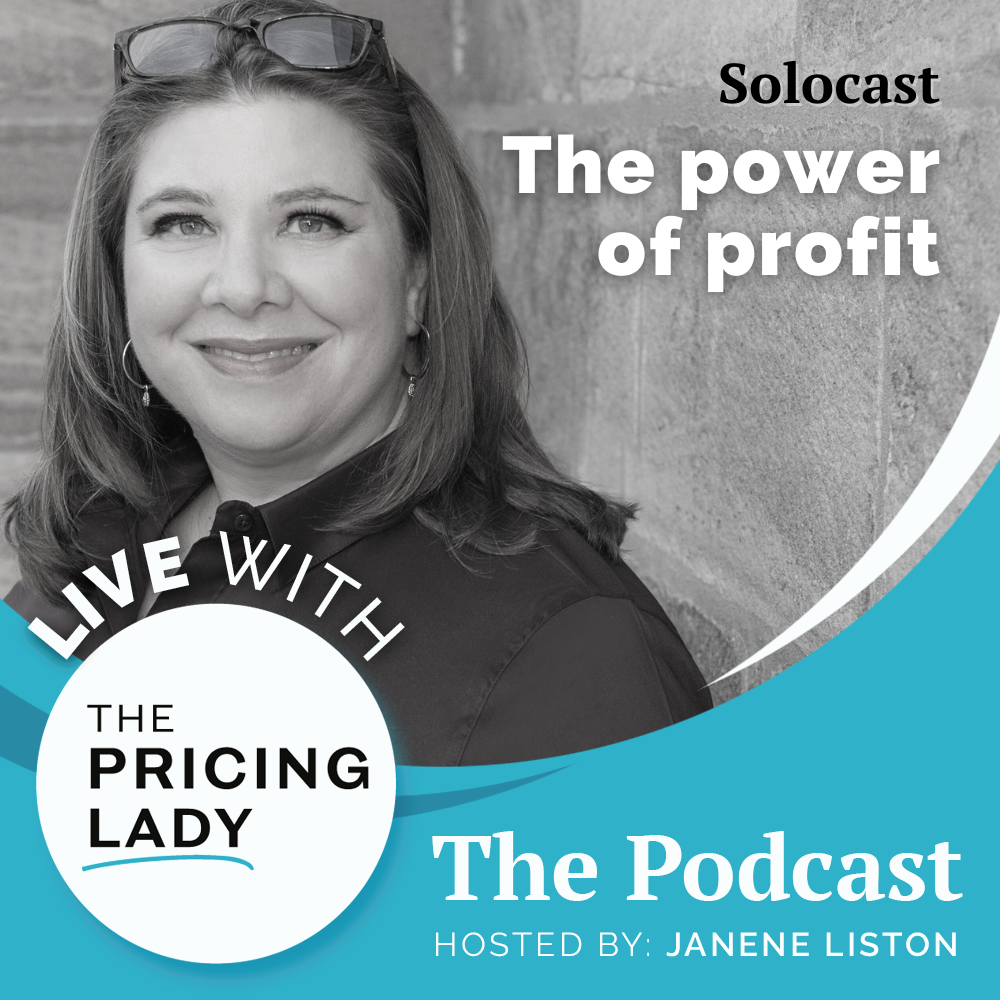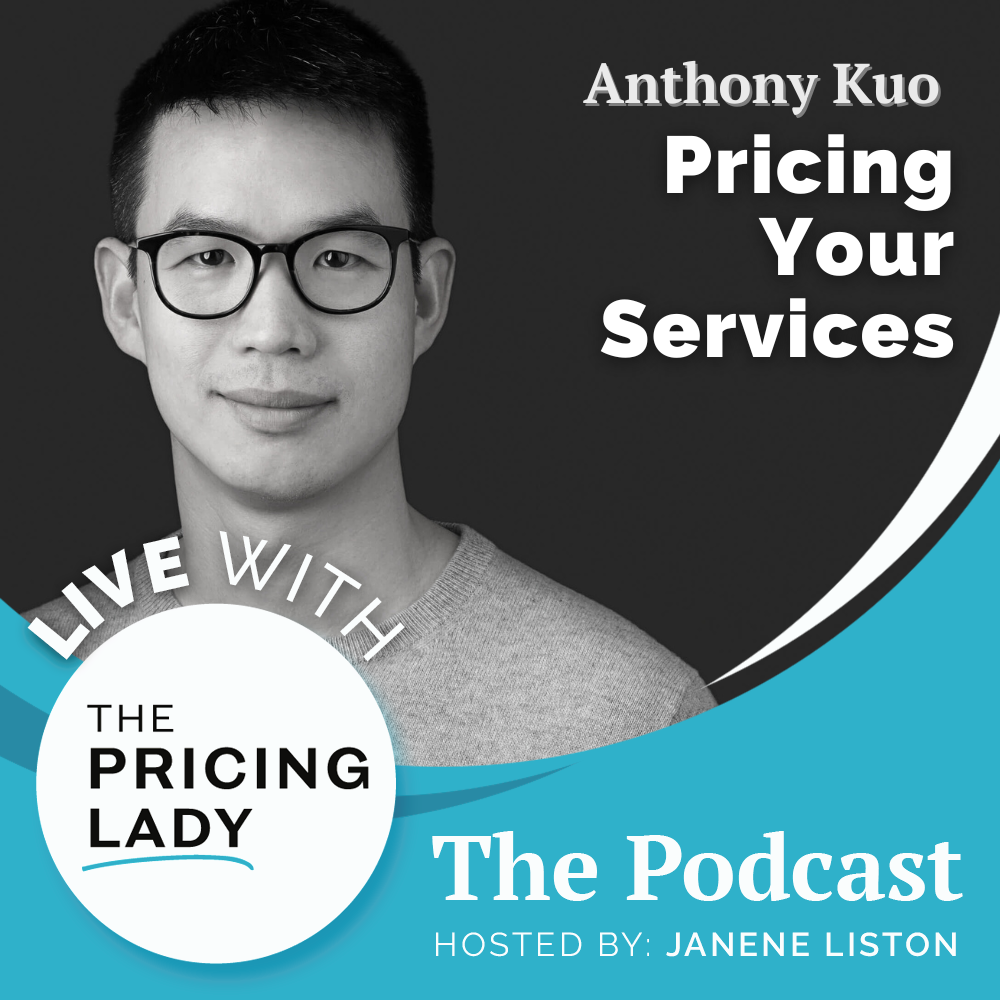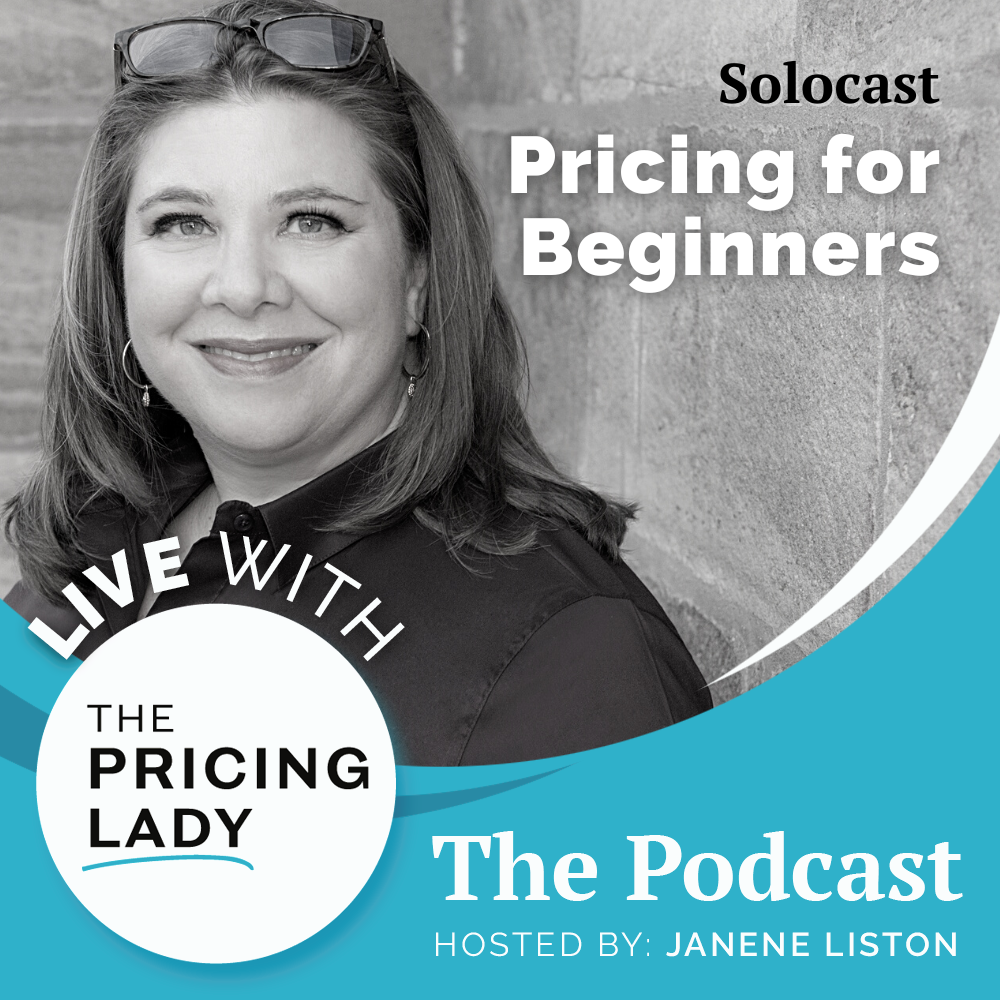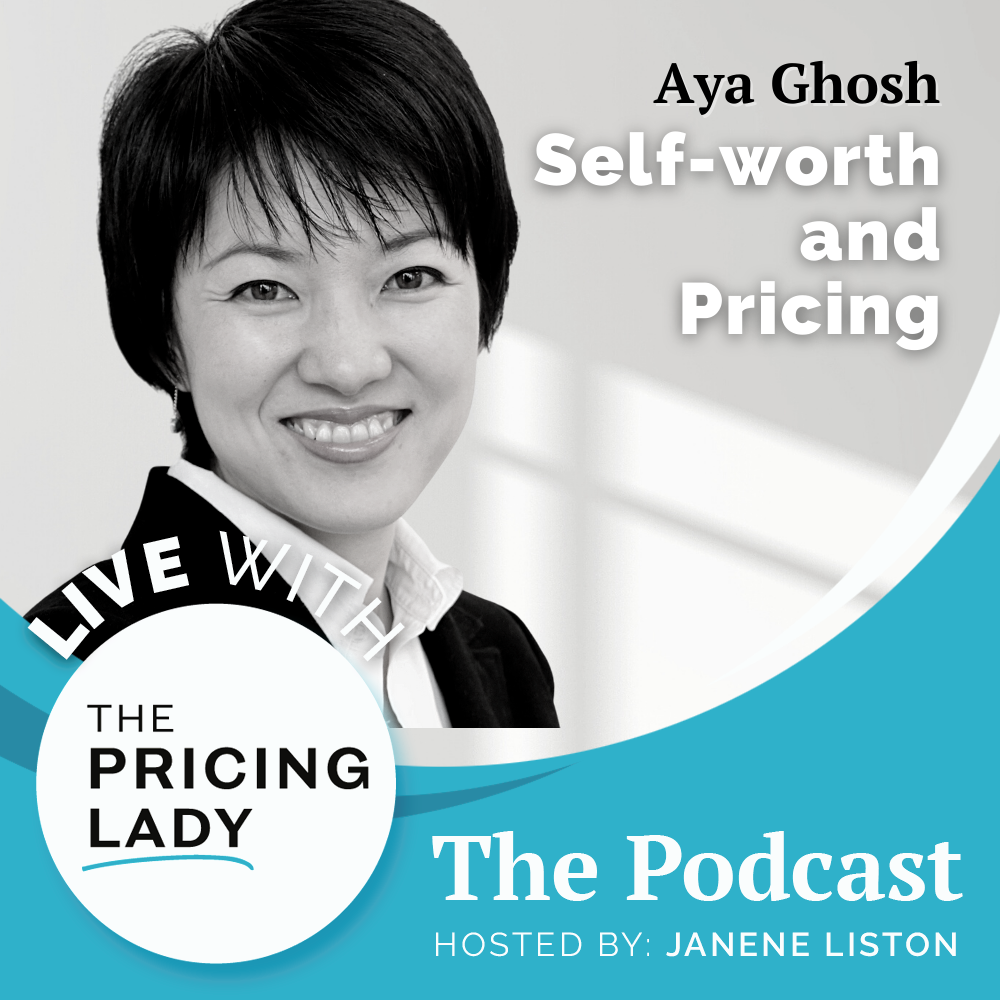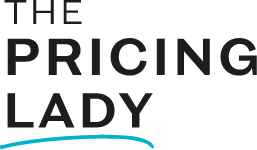Women-owned businesses are significant contributors to the economy. And the number of businesses founded by women in many countries out-pacing overall new business growth. Despite this women face significant obstacles when it comes to starting businesses. While there are many factors that contribute to this, one aspect has to do our relationship to money.
It’s no surprise that women face obstacles in accessing capital and funding. But if we go deeper than that women often have a tenuous, at best, relationship with money. Growing up many didn’t have good role models to follow, weren’t taught how to manage money and/or weren’t expected to develop that relationship. It also has a lot to do with how worthy a person feels and let’s face it in many cultures and families women are made to feel “less than”.
This has consequences in both life and business, in personal finances and indefinitely when it come to pricing in your business. In my experience pricing comes down to competence and confidence. I’ve seen how people’s mindsets about money impact their pricing behavior. That’s why I’ve brought two Money experts on to the show to have this conversation.
In This Episode
In this episode (part 1 of 2) I’ve invited Ilana Jankowitz, Money Mindset expert back to the show and Clara Creitz, an expert in Personal Finance for Women, to help me explore the topic of Women and Money. The panel discussion format is something I’ve been wanting to bring to the show for a while. They share about their own journeys and their insights about women and money, including what we do well. As well as some of the things we struggle with and how to start breaking free of them.
If there’s anything I’ve learned in starting my own business it’s that it’s a personal journey more than anything else. Mindset around money for most of us, plays a huge role in our success.
Podcast Episode Highlights
- 0:00 Intro
- 3:24 Getting to Know the Guests
- 6:09 The Journey of Starting Your Own Business
- 10:00 First Thoughts on Women and Money
- 12:57 Soft and Hard Skills
- 16:48 Mindset Challenges
- 23:44 Money Role Models
- 27:11 What Women Do Really Well in Money
- 32:00 Wrapping Up (Part 1)
Favorite Quotes
“Even if you’ve set the perfect budget, you still have to do it. You need the motivation and self-reflection in order to go with and put that budget into action.” Clara
“The soft side is basically the EQ of money, the psychology of money. Where Clara does the IQ, the the hardest side, which is telling you what to do with your money. The emotional side, the EQ is all the emotions.” Ilana
“I can read someone’s (money) archetypes and tell them all about their marriage and about what’s going on in their business and what’s going on with their kids. And people are like, wow.” Ilana
“Women have a certain stereotypes in their head about ‘I’m not good enough’ or ‘ I’m not good with math’ or ‘I’m not interested in math’ etc.. That leads to them choosing not to deal with their finances.” Clara
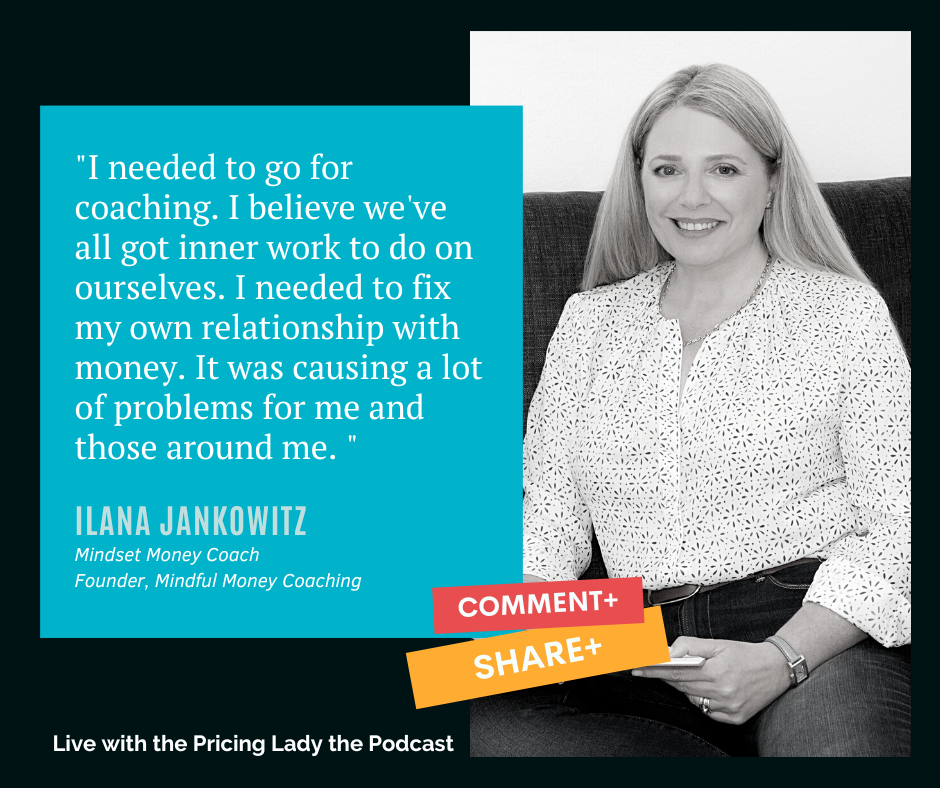
“I really believe that the journey that we go on with money starts in the home.” Ilana
“What they do learn is how to take responsibility, how to budget they, that budgeting is actually fun that knowing where… I always say to them, “Know where your money’s going, and not wonder where it went.” Ilana
“There’s no difference capability-wise when it comes to money and the potential women and men have. The problem arises most often from our mindset.” Janene
“Personal finance is about following through and begin more consistent. As well as sharing that knowledge with others including their kids.” Janene
Episode Links
Reach out to these Amazing Ladies.
>>> Clara Creitz | LinkedIn | Instagram | Facebook
>>> Ilana Jankowitz | LinkedIn | Instagram | Facebook
Rate, Review and Follow the Show on Apple Podcasts
“I’ve just found my Pricing Resource!” … “A binge worthy podcast.” … “I learned so much about how to improve my profitability.”
If that sounds like you, please consider rating and reviewing the pricing podcast. It helps me spread the word to more people and ultimately get more small businesses on the path to sustainable profitability and business success. Click right here, tap to rate with five stars, then select “Write a Review.” Last let me know what you loved most about the episode!
If you don’t already, follow my pricing podcast. New episodes come out every couple of weeks, plus bonus episode. If you’re not following there’s a good chance you’ll miss something. And last, listen to more episodes there are more than 130 episodes to choose from from setting prices to executing them to changing them you’ll find answers to many of your pricing questions.
Reach Out, Connect and Book a Call with Janene
Linkedin | YouTube | Facebook | Email List
Get started improving your business. Sometimes it’s difficult to know where to begin. I suggest you Download the the self assessment Pricing Scorecard. Get a view of what’s working and what’s not working when it comes to pricing in your business. Figure out where to start making improvements.
Get in touch with Janene, your Business Strategist & Pricing Expert. If you’ve got a business question that needs answering, a pricing challenge you’re facing or you have suggestions for future topics or guests, let me know. Your questions and insights often become episodes. Share yours with me and let’s see where it goes. Contact Janene.
Listen up! Don’t miss out. There’s a lot going on and you’ll want to be in the know. Follow my YouTube channel (rate it too please) so you don’t miss an episode of Live with The Pricing Lady or join my Email List.
Transform your business and life. My mission is to help you build a sustainably profitable business. One where you can confidently charge for the value you deliver. Curious about my coaching and consulting offers, check them out. Let’s see how we can work together. Book a complimentary Call
Episode Transcript
Janene: Today’s episode is something that I’ve had on my mind for quite a while. For about a year now, I’ve been wanting to introduce panel episodes into the show mix, so maybe once or twice a quarter. I’m excited to have two experts with me today to discuss Women and Money.
We will try and bring these in for all of you listeners out there so that you can enjoy lots of different topics and opinions. Today, why don’t we go ahead and start as usual with a few rapid-fire questions. Clara, I’ll start with you. Where are you calling from today?
Clara: I am in lovely Kilchberg, close to Zurich in Switzerland.
Janene: Super. And Ilana, where are you calling from?
Ilana: I’m in Zumikon in Zurich.
Janene: In Zurich as well. We got three non-Swiss ladies all living in Switzerland, where are you from originally, ladies?
Ilana: I’m originally from South Africa, but I am Swiss now, I have a Swiss passport.
Janene: Me too. Clara?
Clara: It’s complicated. I was born actually in Ireland but grew up in Italy, Germany.
My father’s American. I’m now in Switzerland, so you know, you choose.
Janene: We’ve got the melting pot right here, at least a good portion of it. Excellent.
Getting to Know the Guests
Janene: Ilana, what’s your superpower?
Ilana: I think my intuition that I’m able to often know what’s going on when I’m working with someone without them telling me my energies that I pick up what’s happening and what they’re not telling me. To love it and value it.
Janene: It’s a good skill to have. Clara, how would you describe your superpower?
Clara: I’m not sure if it’s a superpower, but I really like to work 80 20, I’m not the perfectionist. I think that helps in business.
Janene: I think it helps in a lot of aspects, not just business. In the US we say it’s good enough for government work.
Clara, what’s one thing that people don’t usually know about you that you’d like to share with us?
Clara: Some people know this about me, but not in a business context. I also love to travel and if I wouldn’t have founded a business in the finance space, it would be travel. I visited over a hundred countries, still counting.
Janene: What’s one of your favorite places?
Clara: I think one of my favorite places was Southern Africa. I wouldn’t be able to pinpoint one country, but I started with Namibia, which I absolutely loved.
Janene: Excellent.
Ilana, what’s one thing that people don’t usually know about you you’d like to share?
Ilana: To me that I went to an all-boys school, grew up with four brothers, so it was quite a tomboy. I love rugby, love watching rugby. I think a lot of people know that about me.
A bit of a tomboy I thought.
Janene: That’s interesting. This sounds like a topic for a totally different episode about going to an all-boys school, for sure. Must have some interesting stories to tell.
Ilana’s Journey of Starting Her Own Business
Janene: Let’s take a moment to get to know you each about how you got to where you are today before we dig deep into Women and Money.
Ilana, how did you get into your business?
Ilana: I’ve had my own business literally for years, so business for me is easy, marketing the whole business side. When I moved to Switzerland, I needed to go for coaching because I all believed that we’ve got inner work to do on ourselves, and I needed to fix my relationship with money.
It was atrocious. I did not have a very healthy relationship, which was causing a lot of marriage problems because we were always fighting about money. When I went for the coaching, I realized I had such breakthroughs, and it was just life changing.
I realized that this was something that had happened to me, I wanted to help other women and I started investigating, looking into how I could do this and combine my business experience and take it forward to help them grow their business, make money, but fix money.
Janene: How would you describe the value that your clients get from working with you?
Ilana: They learn to be very comfortable with money. It’s fun to budget. It’s not something scary ‘cause normally I ask them where they feel it in their body when I mention certain words.
They normally say in their gut when their throat, which isn’t a good sign as well as they become free. They learn that they can be abundant, and money can come in from many different areas.
I teach them how to make the most money in their businesses. A lot of them quote me, if my business isn’t making money, then it’s a hobby. I teach them how to make money and where the money opportunities are.
Clara’s Journey of Starting Her Own Business
Janene: Excellent. Can’t wait to learn more. Clara, why don’t you share with us a bit about your journey to starting your own business and what you do?
Clara: Yes, I originally come from the banking industry.
I’ve been working there for over 10 years. And the reason why I founded Finelle. Finelle focuses on financial education as well as financial planning specifically for women, was because I realized working at the bank that a lot of women also working at the bank did not take care of their finances because there are very few female financial advisors and in the product space.
So that kind of led one to another. I focused and specifically on that subject, first, wanting to be a female financial advisor, but also addressing certain topics that you would not necessarily see with a typical financial planner or financial advisor at a bank or insurance company.
I really look at it more from a holistic picture.
Janene: And how would you describe the value ultimately that your clients get from working with you?
Clara: I think the main one I see is a little bit like peace of mind. So often they come with questions surrounding topics such as retirement planning and investing.
They want to know how well they are or not. And then if we can come up with strategies to so that they are okay. It’s peace of mind and at the end financial confidence and financial freedom.
Janene: I’ve got the two right people here with me today for sure.
Let’s Start Digging into Women and Money
Janene: I’d like to start by just reflecting a bit, when I first approached you about doing this episode on Women and Money, what was it that came to mind first for you?
Ilana: I work predominantly with women, so I used to work with men. I used to do couple coaching, but I found that I didn’t really wanna do it after a while because it’s kind of hard. They used to attack each other while we were having a session and I just thought, I’m not enjoying this.
I wanna resign, but it was my own business and I couldn’t resign. I just then made the decision to work only with women. Helping women to feel empowered with money is one of the most amazing things that you can give them, tools… that you can give them. I really believe that the journey that we go on with money starts in the home.
By teaching women how to do it, you live in a legacy. You live in the most amazing opportunities and legacy for the next generation. It’s not in the schools. I believe that it must be done. I believe it’s with the woman.
Doesn’t matter what age they are. The younger I get them, the better than their twenties, early thirties, it beautiful, but it doesn’t matter what age, but just helping them and just helping them be free. It’s the most beautiful, amazing thing.
Clara’s First Thoughts on Women and Money
Janene: Clara, what were your first thoughts or what came to mind for you?
Clara: I think because you’re working mainly with clients on the pricing side.
What came to my mind is like, because I mainly work also with women and there are some that are self-employed, but then there are others that have an employment or work for corporate organization. What I often see is, when they start to dig deeper into the money topic, either on the soft side mindset piece or on the hard side, they realize how the system works.
Often that has an impact at the end also on their pricing or on their salary negotiation. I think when you really realize and get down to the numbers, then you get really motivated in not only leveraging your assets and wealth, but also bringing up your income as an additional steppingstone.
I think that’s nice because you can see how confidence and competence are super closely interlinked.
Janene: Very strong connection.
Soft and Hard Skills Around Managing Money
Janene: For you Clara, when you think of the soft skills and the hard skills when it comes to money specifically to personal finance, what are those soft skills and what are those hard skills? How would you describe them?
Clara: I think from the soft skills side, I would probably agree with what Ilana said, a lot of times, if we think about how we deal with money, it’s very ingrained in how we were brought up, what our parents told us about money, what we saw around us.
We go either exactly as our parents or the complete opposite. But being aware. What it does to your money management skills. I think is super important because what I see also is that the soft part also affects the heart side of money. What I typically do is I work a lot on like, budgeting skills, investments, looking into retirement planning and the likes.
And I believe if you want to deal with the hard facts, you need the soft skills to support that. Because even if you know the perfect budget you have put it together, you still need the motivation and self-reflection in order to actually go with that budget. As Ilana already said, also start to have fun with it.
I think that’s why I believe they go hand in hand with each other.
Janene: I see the same thing in pricing all the time. A lot of times people will come to me, and I always joke that they think I have this Rolodex of prices in my head and that they say, oh, Janene I make these, tell me what price that I can go click, click and pull out a little card that says the price should be blah, blah.
Women and Money – How Are They Connected
Janene: It always amazes me because I know even if I tell them a price, that if they don’t believe it and feel confident or feel aligned with it, it won’t make a difference because they won’t then be able to get that price. That’s the similar demonstration of that link between if they do the work and they understand why that price and not this price, they know where that price comes from, then they’ll be more aligned with it. Therefore, they’ll be in a better position to use that price effectively.
Clara: It’s very closely linked to self-worth, right? I think the more aligned you feel about, for example, pricing, if you’re self-employed and the actual service, you see that you’re really helping people.
That’s a nice spot also in your business. I think that is something that you see, or I saw at least with some of the clients, where the magic and the fun starts, right?
Janene: Yeah. Ilana, come to you in a moment because I have another question.
But in a lead up to that question, and I’m gonna share my own first. What have you recognized in your own mindset, some of those challenges that you’ve had?
I know for me a lot of my decisions when I was in that transition of going from school to deciding what to do with the rest of my life that a lot of my decisions were based on, I can make more money if I go in this route, and I can take care of myself better.
It was all about planning and that what drove a lot of my decisions and probably to some extent still does today. I hope that I’ve balanced that out a bit.
The “EQ” and “IQ” of Money and What it Means
Janene: Ilana, did you have some struggles as well, or do you find yourself with some, have you found yourself with some mindset challenges yourself?
Ilana: Can I just go back slightly onto what you were saying a minute ago? You were talking about the, the hard side and the soft side. The soft side is basically the EQ of money, the psychology of money where Clara does the IQ, the hardest side, which is telling you what to do with your money.
The emotional side, the EQ is all the emotions. Exactly what Clara was saying, and I just want to kind of add to that, is how you feel about yourself. Your self-worth is very linked to the way you earn, how much you would ask for an increase your self-confidence that you would go to the boss and say, I want that raise, or I want that promotion.
There’s also obviously the other side of the emotional stuff, which is the fear, the anxiety, the lack, the scarcity, and all those things that come in. There are so many emotions around the soft side and women often get caught up because we all are emotional beings. We get caught up in the emotions and that’s where this like whole thing comes into.
We get stuck and fear and these limiting beliefs and the glass ceilings just here and I can’t have more, and I can’t, and I’m, and then, you know, it’s a man’s world and you start just pushing yourself smaller and smaller and smaller. So that’s more just on the soft side that I just sort of wanted to add to that.
Personal Money Journey
Ilana: My money journey was terrible to start off with, and I’ve always been an entrepreneur from a very young age. I’ve always had my own business. So, and when coming to Switzerland, the company that brought my husband out, I sold my business to them couple of years before.
When he finished his executive MBA, they want, he was working for the company, they wanted him in another position altogether. They wanted to bring him out to Switzerland. It was kind of through my connections and my entrepreneurial business that I had. I’ve always had, business is very easy for me.
I can see how to create business. It’s very natural for me. That’s the part that I absolutely love. I’ve always known that I would go into my own business. There’s very short time where I’ve worked for a bus.
Janene: Interesting. One of the things that I learned when I first started my own business, I was looking at habitudes, have you ever looked at habitudes, the Habitudes cards? Which are money mindset cards? And they talked about, and I know you have your archetypes, so they have a similar thing.
They don’t call them archetypes. They have a similar thing about, how you kind of deal with money in different ways or what drives your money-based decisions. Are you familiar with those?
Ilana: Not those, but I’m very familiar. I haven’t looked into those, and they probably are quite a few.
Money Archetypes
Ilana: I’ve studied the archetypes, which come from Carl Jung, who was a Swiss philosopher in the 19 hundreds. I know the archetypes. I can read someone’s (money) archetypes and tell them all about their marriage and about what’s going on in their business and what’s going on with their kids. And people are like, wow.
Because it tells you so much about the person’s characteristics and how they live in, on a day-to-day basis, their decision making. As well as just where the fears are, where the block, where the challenges are. I can see that from the archetypes, the money archetypes I’ve designed myself together with my husband.
My husband’s has helped me a lot with the quiz and our system, our system that I use. I use those archetypes every single day and I’m able to tell exactly what he’s going. Often people say to me, I feel naked. I’ve just had a conversation with you, and I’m like naked in front of you.
I’m like okay. Or they tell me You’ve got a glass ball on your table. How do you know that this is going on? Because I can see if there’s betrayal or if somebody’s in a transition or what’s going on, just from the arch from what they answer in their quiz.
Janene: Interesting. That is a gift. Maybe that’s also related to your superpower, obviously.
Women and Money and the Challenges We Face
Janene: Clara, why don’t you share with us a bit, what are some of the challenges that women or people in general and then women specifically face in personal finance?
Clara: I would say because of the way we are brought up and because I think also of missing role models to a certain degree, female role models, when it comes to money.
I think a lot of women have certain stereotypes also in their head about I’m not good with math or I’m not even interested in the subject. I’m not good at that, and stuff like that. That leads often to the fact that they don’t deal with their personal finances.
Budgeting is one thing. But then also the more long-term topics such as retirement planning and investing. which I believe. women even need to take care of it more than men due to structural things such as gender pay gap, pension gap, and the likes. I think because also of these like stereotypes and upbringing, often they’re a bit scared to take care of these topics. That’s where I usually start to work with them, is to help them understand how the system work and how to navigate it.
In order to also utilize it for themselves. Because there are these challenges, but interestingly enough, if women actually understand how it works, often they’re the better investors because they’re less prone to certain behavioral biases such as overconfidence.
There’s also the good side of it. I personally think it’s more getting started and taking the courage to take care of their personal situation.
Who Was the Money Person
Janene: When you were growing up, who was the money person in the family? Or was there one?
Maybe there were two, maybe they’re both involved.
Clara: To be honest, it was my grandmother.
Janene: Very interesting.
Clara: In my case, I did have a good role model. My grandmother, she was always the businesswoman. In her marriage, she was the person who was running the business and her husband who was, who’s not my grandfather who was taking care of the household and the likes.
He had a little bit different mindset. Obviously, that led to the fact that in my personal world, being a woman, having her own business, not being tied to car, caretaker activities were something that influenced my thinking very strongly. Then my mom was also self-employed, she ran her business because we were four kids and that’s the only way to take care of your four kids and somehow manage a career without the district nine to five rules and all this kind of stuff.
I think that was much easier for her to handle.
Janene: Interesting. And you, Ilana?
Ilana: Definitely my mom. My dad passed away when we were very young, so my mom had to handle five kids on her own. It’s quite interesting because majority of the women that I work with are all, they often come to me when there’s already probably about 70% at the moment that I’m working with are ladies that gone through a divorce or going through a divorce.
Going in the Opposite Direction
Ilana: They’ve never had to look at money before. Money’s never been a problem. Somebody else’s handled that. It’s a guy’s job to do it and now all of a sudden they’ve gotta handle it. For my mom, it was exactly the same. She trusted my dad. She thought that my dad had everything sorted out and he drove around with an unsigned wool and unsigned policies in the glove box of his car.
He was just too afraid to look at it. When he passed away, he left her with nothing. I saw her work in literally three jobs and into the night. That was my role model. I was like, that’s not happening to me.
Janene: You decided to go some somewhat in the opposite direction, right?
Ilana: Overcompensated and guilt and all sorts of stuff. Cuz there’s a lot of, that’s one of the big emotions that come up. Guilt and shame and secrecy and all that above money.
Janene: I grew up in a household where my mom took care of the money. I never knew anything different. They made a deal together that he would make the money, she’d take care of the money. I bow to her an investment and a personal finance goddess because she has done so well for the family.
I wish at times she’d passed a little bit more on onto me. It’s interesting that we all come from backgrounds and in some aspect where actually our role models were women, but in very different contexts.
Janene: Thank you for sharing that.
What Women Do Really Well in Money
Janene: Ilana, what is it that women do really well in the context of money? It’s not all bad news when it comes to women and money, is it?
Ilana: That’s normally coaching. I’ve worked with a lot of women and before they’ve done the program, there were a lot of things that they had to unlearn. What they do learn is how to take responsibility, how to budget they, that budgeting is actually fun that knowing where… I always say to them, “Know where your money’s going, and not wonder where it went.” The thing that they do really well when they get into that is becoming incredibly conscious of the unconscious spending. Normally the spending happens around this feeling of not being good enough.
Clara mentioned self-worth, and what they do is, what happens often with that is there’s addictions attached to it. Addictions are not only spending money, but there’s a whole lot of other addictions where they just fill in this hole, this emotional hole. What they do really well is they’re become incredibly conscious of their thoughts and their patterns, and then they start taking control of their money.
It’s so beautiful to see because it’s literally day and night. They realize they can do just as good a job as their husbands. A lot of the ladies that I’ve worked with have done gone on to do investment courses where they’re learning to invest money and some of their husbands are blown away.
They’re like, wow, this is amazing. This is so sexy. This was the last thing they expected from their wives, you know, to be investing and doing things and saving for the future. Saving to buy properties, paying for travel. It’s really amazing to see how empowered that women can be just as empowered, not more than men.
No Real Difference
Janene: It’s so important. A few years back ago, one of my neighbors, she’s in her seventies, her husband passed away and she had never written a check or done any e-banking or anything like that. It was so overwhelming for her. But once she got it, the capability is there. I think there’s no real difference capability wise when it comes to money, what the potential that men and women have.
I think the problem comes again, and as you both then mentioned, that often comes from our upbringing and our mindset towards money until they have to or until they have to. It’s amazing what can happen when you don’t have or when you feel like you don’t have a choice anymore.
Clara, what is it that you think, and in your experience, that women do really well in this area? Anything else to add there?
Clara: One thing that I see is when they start to get into the topic, they really take it seriously. Really follow through. I think that’s something I found quite amazing to a certain degree, what Ilana already mentioned.
What I saw, like for example in courses that I did also more on the investment side, that they shared their knowledge with their partner and some of them were working in the banking industry and some were also, oh, this is something I didn’t even know. What I think is quite nice is when they start to go into the topic, that they share that with their friends and their partners and so forth.
Passing It On
Clara: That helps the money relationship or also the relationship part. Which was they start to have a topic they can discuss together. I think that’s super nice and I think on the investment side, what I often see is that they have a more strict strategy, which we know from statistic works much better than this.
Like trial-and-error philosophy, what often men apply, which is nice in terms of like, you get started instead of like analyzing and then at the end you don’t take any decision. But I think when they start and they put a strategy in place, they stick to it. And I think that’s a really something that I see with a lot of women.
I think it’s following through being more consistent and sharing also their knowledge with, with their environment. Yeah, including kids. I often work with moms who then when they set up their own portfolio, they’re like, how can I do this for my kids? How can I share the knowledge and so forth?
It’s like thinking even a step further than just managing their own personal finances.
Janene: It’s super important to pass that on, whoever it comes from. It’s super important to pass that on, those good habits.

